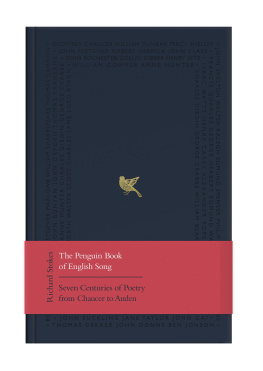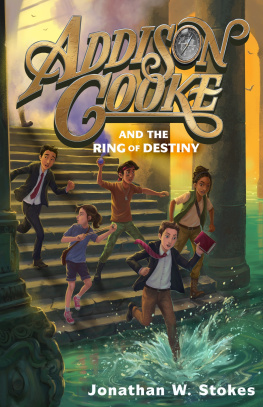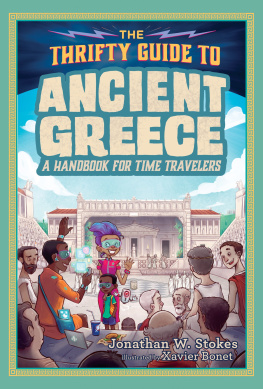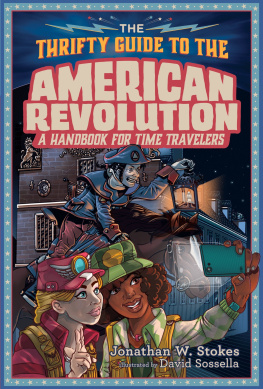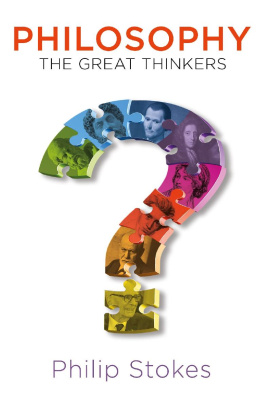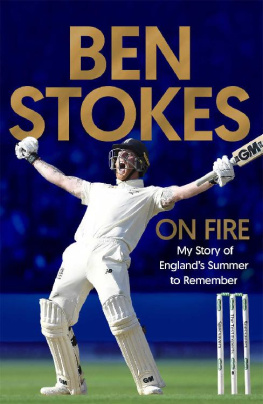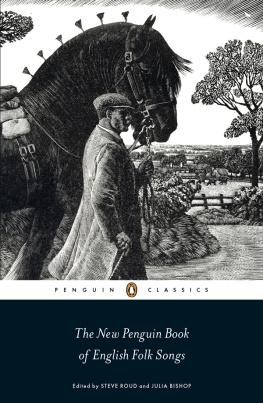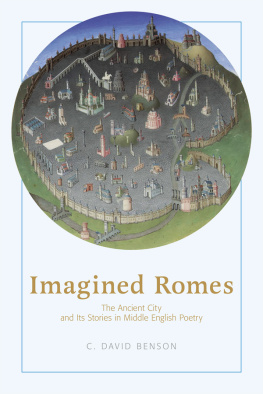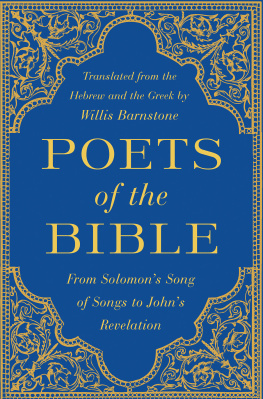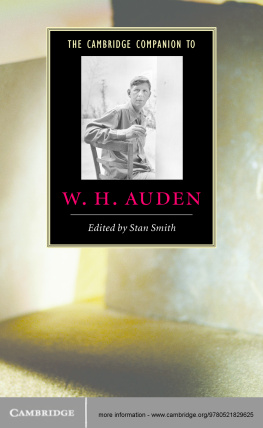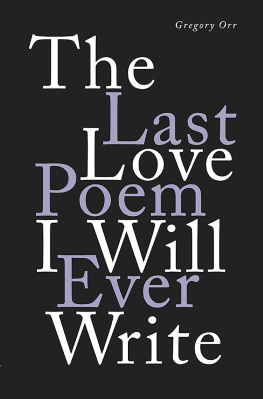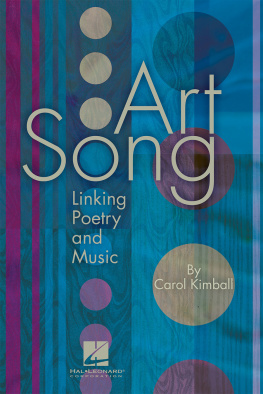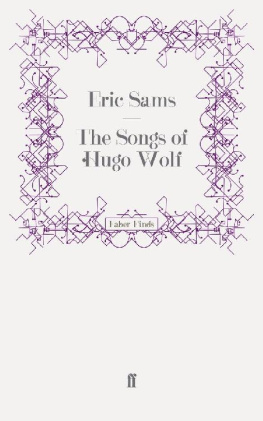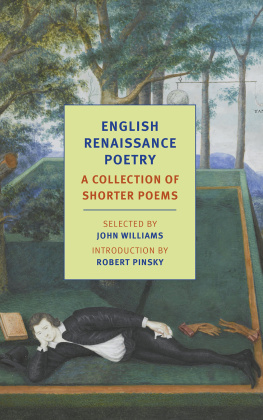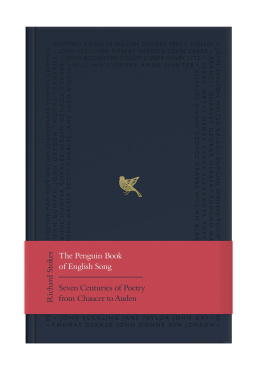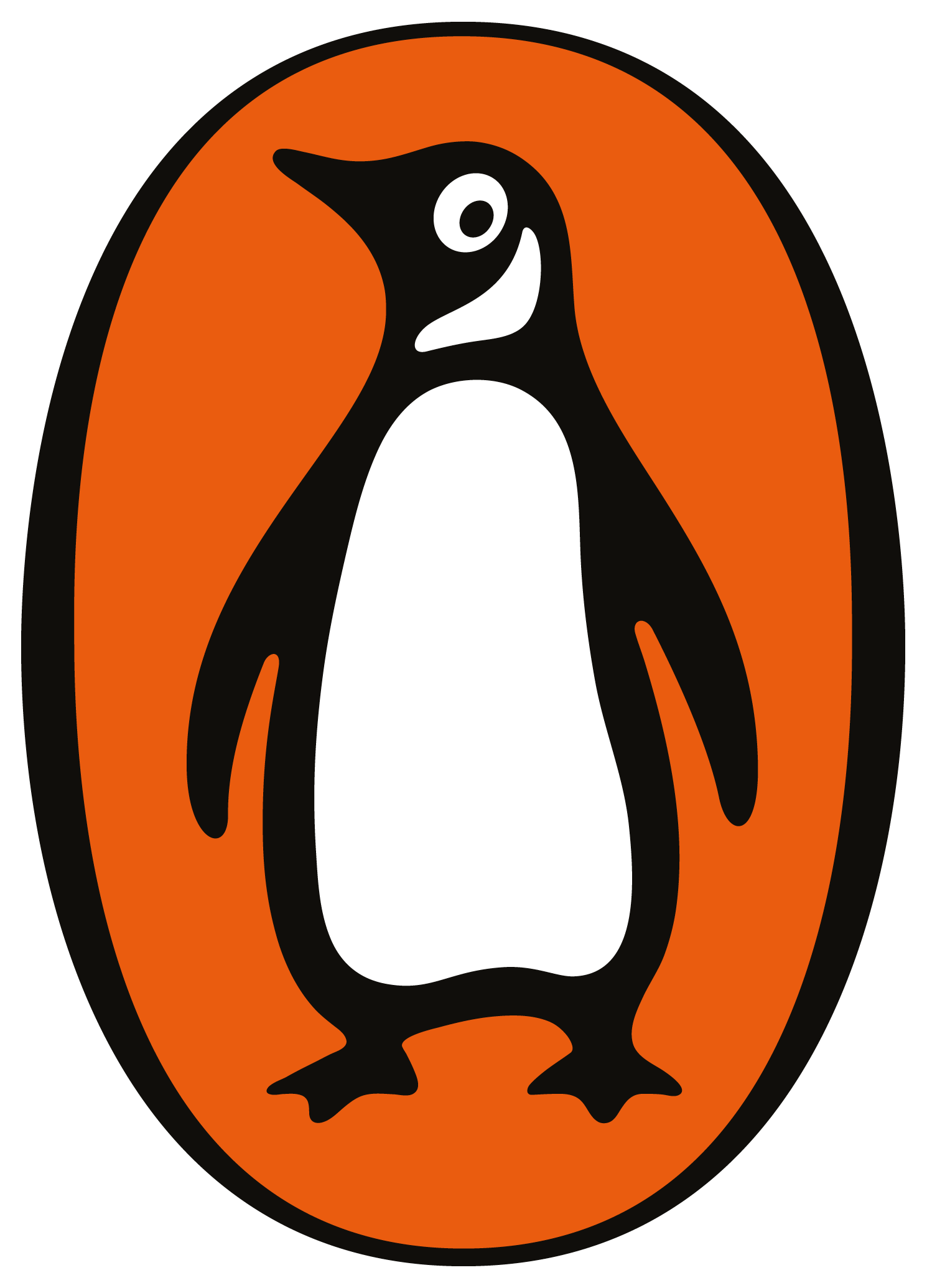Richard Stokes
THE PENGUIN BOOK OF ENGLISH SONG
Seven Centuries of Poetry from Chaucer to Auden
This book is dedicated to Ian Partridge, peerless in this repertoire, Audrey Hyland, Jonathan Freeman-Attwood, Mark Wildman and all at the Royal Academy of Music who promote the art of song.
Introduction
Poetry and music have been associated with each other from the very beginning. Short poems are still called lyrics, even though they are now not usually sung to a lyre; Virgils Aeneid begins: Arma virumque cano I sing [not tell] of arms and man; a sonnet, though rarely sung, derives its name from the word song; many poems from the Elizabethan age to the present have been called Song, with no musical setting; and music, for many of us, is an integral part of poetry. The Penguin Book of English Song contains a great variety of poems from the fourteenth to the twentieth century that have reached a wider audience through the magic of music. As John Dryden wrote in the dedication of Purcells The Vocal and Instrumental Musick of The Prophetess, or The History of Dioclesian (1690):
Musick and Poetry have ever been acknowledgd Sisters, which walking hand in hand, support each other; As Poetry is the harmony of Words, so Musick is that of Notes: and as Poetry is a Rise above Prose and Oratory, so is Musick the exaltation of Poetry. Both of them may excel apart, but sure are most excellent when they are joind, because nothing is then wanting to either of their Perfections: for thus they appear like Wit and Beauty in the same Person.
There are many books available in English that introduce the reader to the world of French, German, Italian and Spanish song, among them A French Song Companion (OUP), The Book of Lieder (Faber and Faber), Italian Art Song (Indiana University Press) and The Spanish Song Companion (Scarecrow Press). There is no equivalent book on English song, no book that provides an anthology of English verse with commentaries on poets, composers and, when textual explanations are needed, poems. Each of the 100 chapters of The Penguin Book of English Song, arranged chronologically from Chaucer to Auden, opens with information about the poets life, work and, often, approach to music. This is followed by a choice of poems that have inspired musical settings, arranged chronologically by composer. Piano-accompanied song predominates, but not exclusively. Benjamin Britten, for example, is represented not only by such works as Winter Words (Hardy) for voice and piano, but also his Spring Symphony (Spenser, Clare, Milton, Herrick); Nocturne (Shelley, Tennyson, Wordsworth, Owen, Keats, Shakespeare) for tenor, seven obbligato instruments and string orchestra; A Ceremony of Carols (Southwell) for trebles and harp; Serenade (Tennyson, Blake, Jonson, Keats) for tenor, horn and strings; Five Flower Songs (Herrick, Crabbe, Clare) for unaccompanied chorus; Canticle III (Sitwell) for tenor, horn and piano; and Peter Grimes (Crabbe) reminding us that Britten was one of the very few composers who were equally at home in opera and song.
Many of these English poems have also inspired songs in German translation by the great Lieder composers, which explains the presence within these pages of Beethoven, Haydn, Loewe, Mendelssohn, Schubert, Schumann, Strauss, Wolf and so on. The bulk of the book comprises verse of undisputed literary pedigree a rich anthology of English poetry (including Irish, Scots and Welsh writers) from Chaucer to Auden, with very few of the great poets omitted. American verse has been excluded for lack of space, though American composers such as Argento, Barber, Beach, Chanler, Hoiby, Rorem etc. feature regularly in the selected list of composers printed in parenthesis at the end of a poem.
The volume, despite the presence of many composers of different nationalities, remains quintessentially English, and includes pieces that have a firm place in our national consciousness: Rule, Britannia! (James Thomson), sung each year at the Last Night of the Proms; Abide with me (Henry Francis Lyte), bawled each year at the Cup Final; Twinkle, twinkle, little star (Jane Taylor), cooed by every child in its pram; Tom Bowling (Charles Dibdin), caressed each year by the BBC Orchestras first cello at the Last Night of the Proms; Auld lang syne (Robert Burns), intoned, not just by the Scots, each Hogmanay; Jerusalem (William Blake), the official hymn of the England and Wales Cricket Board; and Once in royal Davids city (Cecil Frances Alexander), whose first verse is sung by a lone treble each year at the Festival of Nine Lessons and Carols from Kings College, Cambridge. Patriotic poems include For those at sea (William Whiting), known to every English-speaking sailor the world over; Our God, our help in ages past (Isaac Watts), sung at Winston Churchills funeral and every Remembrance Day; and the National Anthem.
W. H. Auden wrote in The Poets Tongue (1935) that we do not want to read great poetry all the time, and a good anthology should contain poems for every mood. He also pointed out (Introduction to 19th Century British Minor Poets, 1966), in an attempt to define major and minor poets, that it was not simply a matter of the pleasure the poet gives an individual reader: I cannot enjoy one poem by Shelley and am delighted by every line of William Barnes, but I know perfectly well that Shelley is a major poet and Barnes a minor one. The Penguin Book of English Song includes many so-called minor poets: William Allingham, the friend of Tennyson, who wrote one indestructible poem; Thomas Lovell Beddoes, the haunted poet of Dream-pedlary; Colley Cibber, the poet of The blind boy, immortalized by Franz Schubert; George Crabbe, whose Peter Grimes from The Borough is now celebrated the world over through the music of Benjamin Britten; tragic Ernest Dowson, one of Deliuss favourite poets; Francis Ledwidge, much admired by Seamus Heaney; Sidney Keyes, who died aged twenty in the Second World War; Alun Lewis, another war victim, for whom Robert Graves predicted a shining future; Walter de la Mare, who penned some of the most magical poems in the English language; and many more.
The texts printed here are those of the original poems, even when composers have tweaked the text to suit their settings; and the title of each poem is the one used by the poet. Gurneys By a bierside is therefore titled The Chief Centurions, and the poem is printed as it originally appeared in Masefields Pompey the Great Gurney, when setting the poem from memory in the trenches, misremembered fourteen words. Square brackets after the title of a poem denote the composers title, and square brackets within the poem indicate verses that the composer has omitted.
Francis Turner Palgrave, in his Introduction to a volume of poems by Robert Herrick (Macmillan and Co., 1877), writes perceptively that the poets own spelling and punctuation bear, or may bear, a gleam of his personality and it is for this reason that the poems in The Penguin Book of English Song are printed with their original orthography and punctuation. This also enables us to trace the development of the English language as the book progresses. Modernizing the spelling of Chaucers language affects both the sound, sight, rhythm and flavour of the poem. Compare Chaucers original opening of The General Prologue to the

